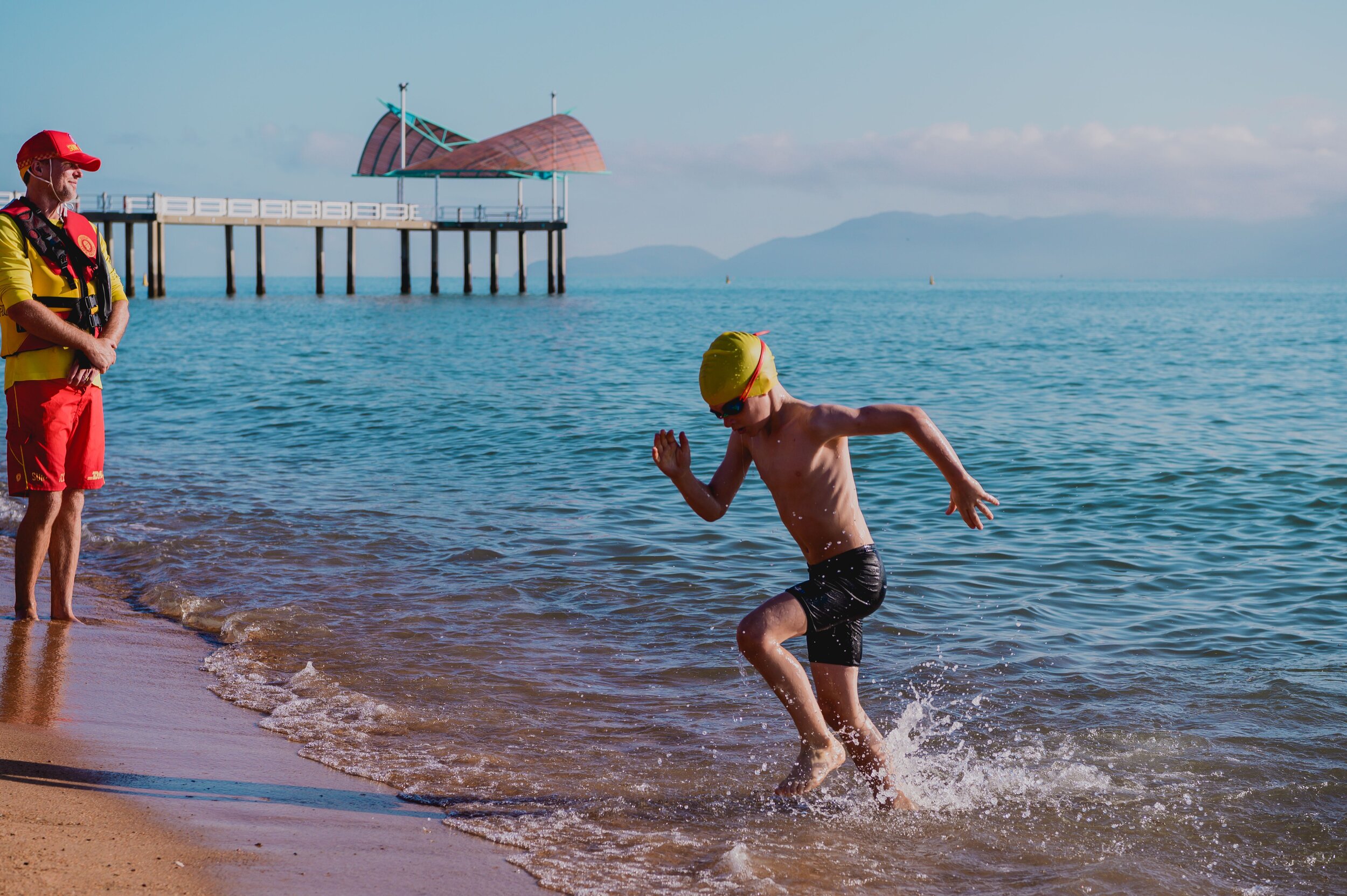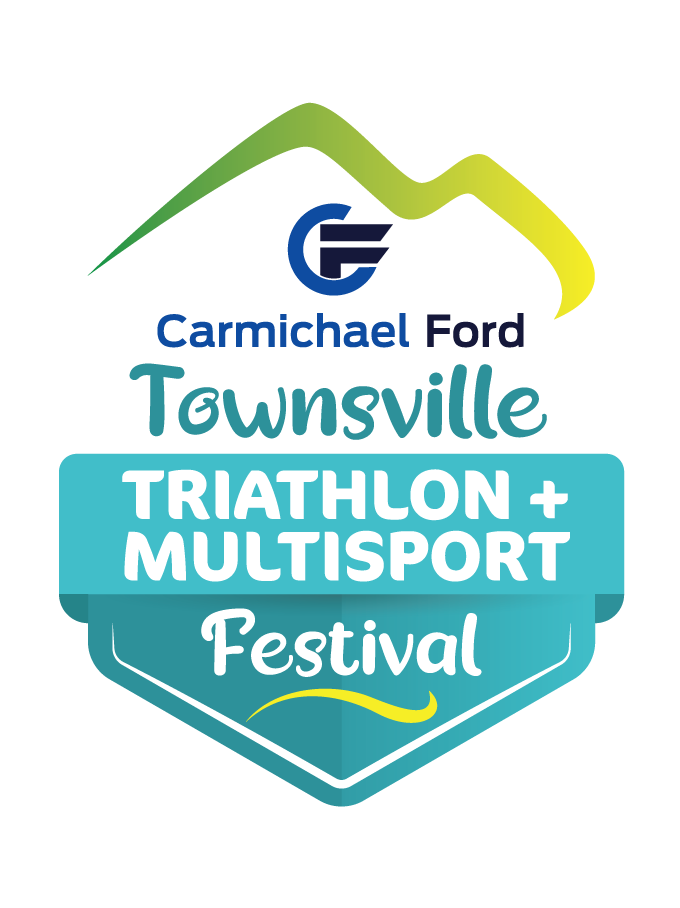
How do I improve in a triathlon?
It sounds like a simple question. Here are a few thoughts on some of the key ways you can drop those seconds off your race time.
By Brad Beven, OAM
As we get older jumping tall buildings in a single bound becomes a little more out of reach every year, not that it isn’t possible. It’s hard to retrain ourselves to think that more, is not better, and harder, does not necessarily produce a better athlete. When I first turned professional my dad reminded me it wasn’t a holiday and I would have to train all day long and, just about did.
I was riding 1000km per week with 30-40km of swimming and 80km of running, with a gym session every second day. Sure there are times that without hard yakka you’ll be eating dust at the back of the pack. The secret is all about complimentary training phases that makeup the complete athlete. Enhance your ability to compete in the different zones; aerobic, anaerobic, threshold etc and training to cope better under stress. You may have heard these terms before but training is simply simulating racing, so when you need to go at a certain pace for a certain distance you have trained accordingly.
Another big factor involved in racing well is consistency in training. Day in day out repetition is the only way to improve. Just remember to consistently train over a long period without stop starting and you’ll reap the rewards, injury free. I enjoy my training but if you can’t get to the start line through injury you’ll be robbed of many of the rewards that come with racing.
Going faster requires a certain amount of training, however with three sports, getting your training in can be a challenge in itself.
Time is something that unfortunately most of us don’t have much of anymore and we have to find ways to maximise the time we do have to get the most out of training.
Even if you love the sport of triathlon, most times it has to come second to work and family. First thing is to identify where you can trim the fat or incorporate ways to effectively use your time. For example; by doing workouts on the way to work when you would normally be sitting in traffic.
Use a Wind Trainer. You can still have a certain amount of family interaction while on a wind trainer even if it is watching Law and Order re runs on TV. Wind Trainers are typically a harder workout so you can probably get away with 25% less time as if you would on the road. If you are limited to only a minimal number of workouts try doing a few brick sessions or running off the bike or bike after the swim to give another simulation of racing that involves more than just one discipline.
Another important factor in time management is to put a plan together. Allocate the amount of time you can afford to everything in your life including work, family, triathlon etc. per week. Get a daily planner to stick on the fridge so your week is more structured and those around you can work within this if need be.
For specific training you may want to stagger and periodise your weeks so that one week is more running orientated and then the next week, has more of a bike flavour. Triathlon has a cross over effect that you can take advantage of. A bike emphasis week still has a positive effect on the run and visa versa. Mark Allen (a legend of the sport, for the youngies) advocated a ten-day training week to tend to all the sessions he needed. A condensed seven-day week just didn’t cut it.
It gets a bit more complicated when trying to periodise your training i.e. doing the right base training at the right intensity, the building phases and the higher intensity work leading into a race. That is when a coach comes into it to help structure your program with everything you need to work towards whatever goal you have set yourself. A coach is a fantastic asset; great to pick their brains on better training techniques. If someone is helping you, it can mean shortcutting any mistakes and it will be a better investment than buying a flasher bike.
A metaphor for training and racing is like making a cake where you need all the ingredients in the right proportions to have the desired outcome. Having an experienced coach can help with this.
Other ways you can still get good workouts in and improve your speed is to introduce some core strength workouts. Obviously you need to do specific swim, bike and run workouts but it is just another way of being a better athlete for less time. There are many exercises that allow you to do them anywhere.
When I was at boarding school, triathlon was considered so uncool and a waste of time, so it was frowned upon. Because I was hooked, I found the time to get some training done. After three hours of study I had a key to a shed to sit on the wind trainer for half an hour and on alternate nights after lights out I would do 500 push-ups and 500 sit ups and some dry land swim work (swim rubbers).
Another idea is to keep a diary of all your training so you can see what worked, what didn’t and what volume and intensity you have done. I have had a diary for every year since I was 13. If I don’t look back on them then at least writing it down helps commit it to memory so that by the end of the week I am satisfied and not looking to do more training.
A diary also helps with one of the most common mistakes athletes make, overtraining, or training to quick. Most triathletes, because they are very driven people, over train and can’t go easy whenever they “lace on the boots” and it isn’t just exclusive to the age group athlete. It filters all the way down from the top pros that are supposed to know how to get to the start line the best way possible, to the novice that doesn’t really have the experience.
A lot of athletes start out improving for a while and then simply hit a plateau; this is indicative of over training.
Personally I am as guilty as the next guy. Back in my hey day, about 1994BD (before drafting), when triathlon was a 3 discipline sport, I used to spend my time in the South of France training with multiple world champion Simon Lessing who was regarded as the quintessential masochist.
When we were training together there were days spent training that were harder than any race I’ve done. The attrition rate of his training buddies and their tenure was both precarious and terminal. This was a challenge I took up, with my racing and results almost a sideline to the three training races we had every day against each other. Run in the morning tongue hanging out, swim midday knuckles dragging and the final ride, a Herculean, Champs Elyseesing, time trialing son of a …gun end to the day.
The point is, I was doing someone else’s training rather than focusing on what I was supposed to achieve in each session I fronted for. Like I said sometimes it was the fun of seeing where the breaking point was and who would hit it first. However this can be the biggest detriment to progress. So do what I say and not what I do is the moral.
Obviously I did a lot of my other training a lot smarter so it wasn’t all bad. Sometimes we are educated but none the wiser. Lessons learnt, are usually after many years of either injury or poor performance. The path of least resistance is not usually for the motivated, competitive and one track minded triathletes that we are. Have some fun but beware of this trap and save a lot of head scratching, self-doubt and injury. That is the main mistake that I believe people make.
Another might be the fact that athletes rely too much on buying the best bike or the best this or that when it may only make a minimal difference in results. I know it is great to upgrade to a new bike, but with the triathlons bottom line being so expensive you shouldn’t feel that if you don’t have the latest and greatest you wouldn’t be able to mix it up. I was never one to get into having all the bells and whistles. Most of my career I raced on Shimano 105, which is the entry-level bike group-set. I used to see most of the age groupers with better gear than I had. It is nice to have it but he who dies with the most toys still dies.
Next mistake I believe athletes make is, working to their strengths and not where most of the time can be made up. Invariably with triathlon you will no doubt have a weakness. Make sure if you have a choice of what training you will do, pick the sport that needs the most work.
These are just some of the most common mistakes most of us succumb to and if it was too easy, well, where is the challenge in that?
Being the best we can be in life can come from the adversity we face.
Here’s to you and I getting it wrong, occasionally, for many years to come..
